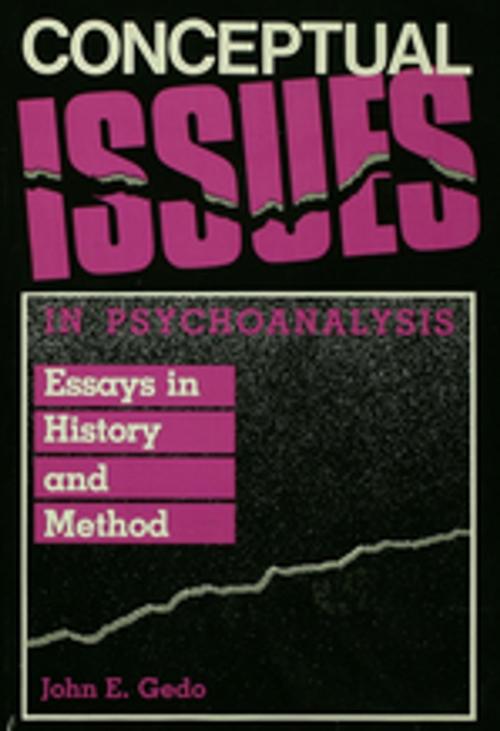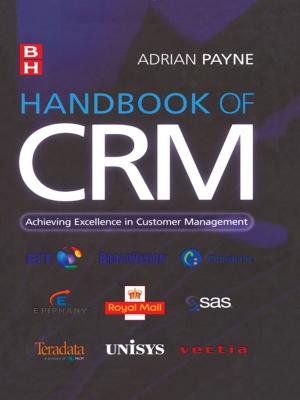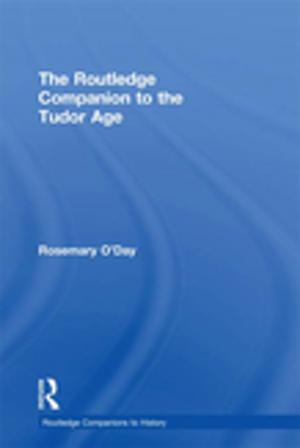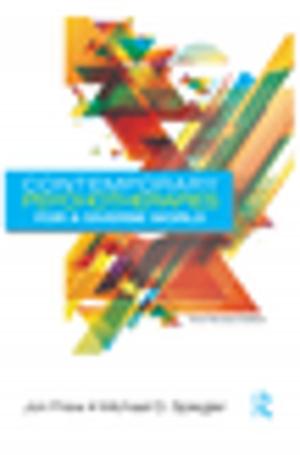Conceptual Issues in Psychoanalysis
Essays in History and Method
Nonfiction, Health & Well Being, Psychology, Pathological Psychology, Applied Psychology, Psychotherapy| Author: | John E. Gedo | ISBN: | 9781134876617 |
| Publisher: | Taylor and Francis | Publication: | May 13, 2013 |
| Imprint: | Routledge | Language: | English |
| Author: | John E. Gedo |
| ISBN: | 9781134876617 |
| Publisher: | Taylor and Francis |
| Publication: | May 13, 2013 |
| Imprint: | Routledge |
| Language: | English |
In Conceptual Issues in Psychoanalysis, John Gedo's mastery of Freudian theory and broad historical consciousness subserve a new goal: an understanding of "dissidence" in psychoanalysis. Gedo launches his inquiry by reflecting expansively on recent assessments of Freud's character. His acute remarks on the intellectual and personal agendas that inform the portraits of Freud offered by Frank Sulloway, Jeffrey Masson, and Peter Swales pave the way for his own definition of psychoanalysis in historical context. Then, in topical studies on Sandor Ferenczi, Melanie Klein, and Heinz Kohut, he explicates the commonalities that bind together three generations of dissidents, each of whom undertook to supplant the edifice of hypotheses erected by Freud with alternative theories. Interspersed with these essays are quite insightful studies of Lou Andreas-Salome and David Rapaport, whom Gedo sees as "epistemological referees" attempting to reconcile viewpoints unique to their generations.
In the second part of the book, Gedo argue that analysis now has the opportunity to move beyond this pattern of dissidence followed by mediation by drawing on observational research about infancy and early childhood to validate or refute its clinical hypotheses. In these chapters, Gedo offers critical commentary on recent efforts to extrapolate from infant research to the psychoanalytic theory of development. Only then does he offer his own measured estimation of the "legacy of infancy and the technique of psychoanalysis." This review of "the challenge of scientific method" as it bears on analysis culminates in concluding chapters that probe the status of analysis as a hermeneutic discipline and the contribution of analysis to "vocabularies of moral deliberation."
In Conceptual Issues in Psychoanalysis, John Gedo's mastery of Freudian theory and broad historical consciousness subserve a new goal: an understanding of "dissidence" in psychoanalysis. Gedo launches his inquiry by reflecting expansively on recent assessments of Freud's character. His acute remarks on the intellectual and personal agendas that inform the portraits of Freud offered by Frank Sulloway, Jeffrey Masson, and Peter Swales pave the way for his own definition of psychoanalysis in historical context. Then, in topical studies on Sandor Ferenczi, Melanie Klein, and Heinz Kohut, he explicates the commonalities that bind together three generations of dissidents, each of whom undertook to supplant the edifice of hypotheses erected by Freud with alternative theories. Interspersed with these essays are quite insightful studies of Lou Andreas-Salome and David Rapaport, whom Gedo sees as "epistemological referees" attempting to reconcile viewpoints unique to their generations.
In the second part of the book, Gedo argue that analysis now has the opportunity to move beyond this pattern of dissidence followed by mediation by drawing on observational research about infancy and early childhood to validate or refute its clinical hypotheses. In these chapters, Gedo offers critical commentary on recent efforts to extrapolate from infant research to the psychoanalytic theory of development. Only then does he offer his own measured estimation of the "legacy of infancy and the technique of psychoanalysis." This review of "the challenge of scientific method" as it bears on analysis culminates in concluding chapters that probe the status of analysis as a hermeneutic discipline and the contribution of analysis to "vocabularies of moral deliberation."















